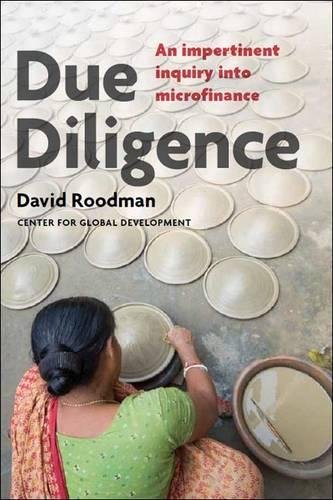

Most ebook files are in PDF format, so you can easily read them using various software such as Foxit Reader or directly on the Google Chrome browser.
Some ebook files are released by publishers in other formats such as .awz, .mobi, .epub, .fb2, etc. You may need to install specific software to read these formats on mobile/PC, such as Calibre.
Please read the tutorial at this link: https://ebookbell.com/faq
We offer FREE conversion to the popular formats you request; however, this may take some time. Therefore, right after payment, please email us, and we will try to provide the service as quickly as possible.
For some exceptional file formats or broken links (if any), please refrain from opening any disputes. Instead, email us first, and we will try to assist within a maximum of 6 hours.
EbookBell Team

5.0
60 reviewsThe idea that small loans can help poor families build businesses and exit poverty has blossomed into a global movement. The concept has captured the public imagination, drawn in billions of dollars, reached millions of customers, and garnered a Nobel Prize. Radical in its suggestion that the poor are creditworthy and conservative in its insistence on individual accountability, the idea has expanded beyond credit into savings, insurance, and money transfers, earning the name microfinance. But is it the boon so many think it is?
Readers of David Roodman's openbook blog will immediately recognize his thorough, straightforward, and trenchant analysis. Due Diligence, written entirely in public with input from readers, probes the truth about microfinance to guide governments, foundations, investors, and private citizens who support financial services for poor people. In particular, it explains the need to deemphasize microcredit in favor of other financial services for the poor.